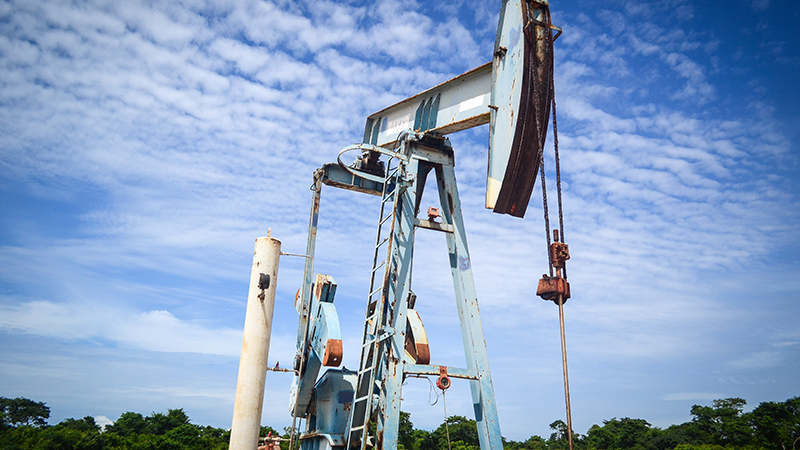Does cheap oil hold back the global low carbon transition?
It is a hotly debated question since prices plummeted in mid-2014 from more than US$100 a barrel to $40-$55 more recently.
A study published in the journal Nature Energy on Monday represents the most systematic attempt yet to answer it – and the findings are significant.
If crude continues to trade at today’s levels until 2050, analysts warned it could “considerably” hinder energy efficiency improvements. Sustained prices of $110-120/bbl, on the other hand, would give a mild boost to carbon-cutting efforts.
The difference between the scenarios amounts to 5-20% of the 2C carbon budget – the amount that can be released within the upper warming limit agreed by governments.
It is the same order of magnitude as the total national emissions cuts promised towards the Paris climate agreement.
Weekly briefing: Sign up for your essential climate politics update
“We took these two extremes to bound the region of possibility,” explained lead author David McCollum of the International Institute for Applied Systems Analysis (IIASA). “Then we looked at the broader energy systems and emissions impacts.”
At each end of the oil price spectrum, analysts from IIASA and the World Bank tested a range of assumptions about technology development and the price of competing fuels.
For example, the faster battery costs come down, the better electric vehicles will be able to overtake petrol-fuelled transport.
They did not specifically analyse the impact of cheap hydrocarbons on the climate pledges countries submitted towards global action.
Developed countries that have set hard emissions targets should not be much affected, McCollum told Climate Home.
China is a different story. It aims to peak emissions in 2030, but does not say at what level. “This is where oil prices could make more of a difference.”
He concluded: “Low prices hamper the transition; high prices give it a boost. In the end, if we are going to get to 2C we have to have strong climate policies in place.”
Gas v Google: Information, not fuel is driving the energy transition
The analysis comes as economists are rethinking the relationship between oil prices, demand and GDP.
Historically, cheap oil was seen as a boon, stimulating demand. This time round, weakening demand was a significant driver of the price slump.
The European Central Bank wrote in its latest economic bulletin: “Although the low oil price may still support domestic demand through rising real incomes in net oil-importing countries, it would not necessarily offset the broader effects of weaker global demand.”
Consultancy McKinsey recently cut its global oil demand forecast to 0.8% a year to 2040, well below other mainstream estimates.
If there is an extra push to recycle hydrocarbon-based plastics and promote electric vehicles, its analysts said demand could peak as early as 2030.
